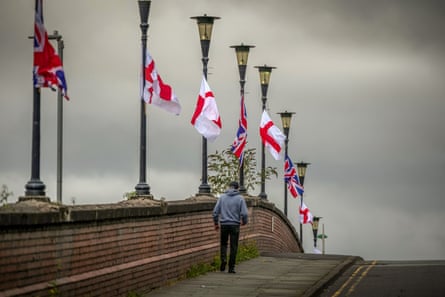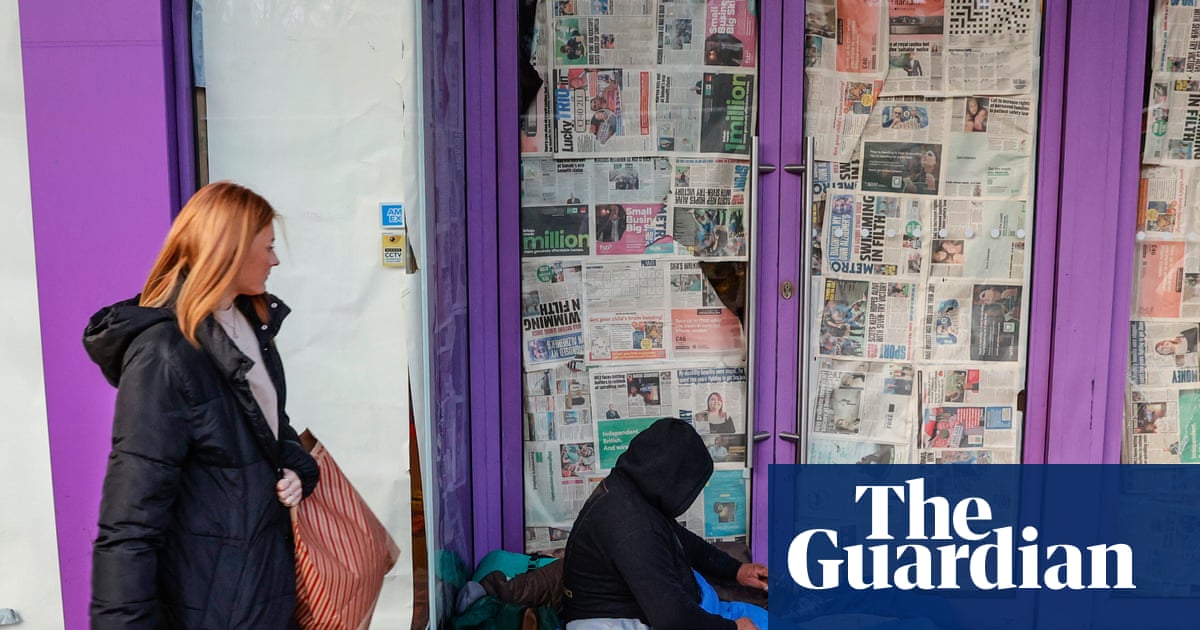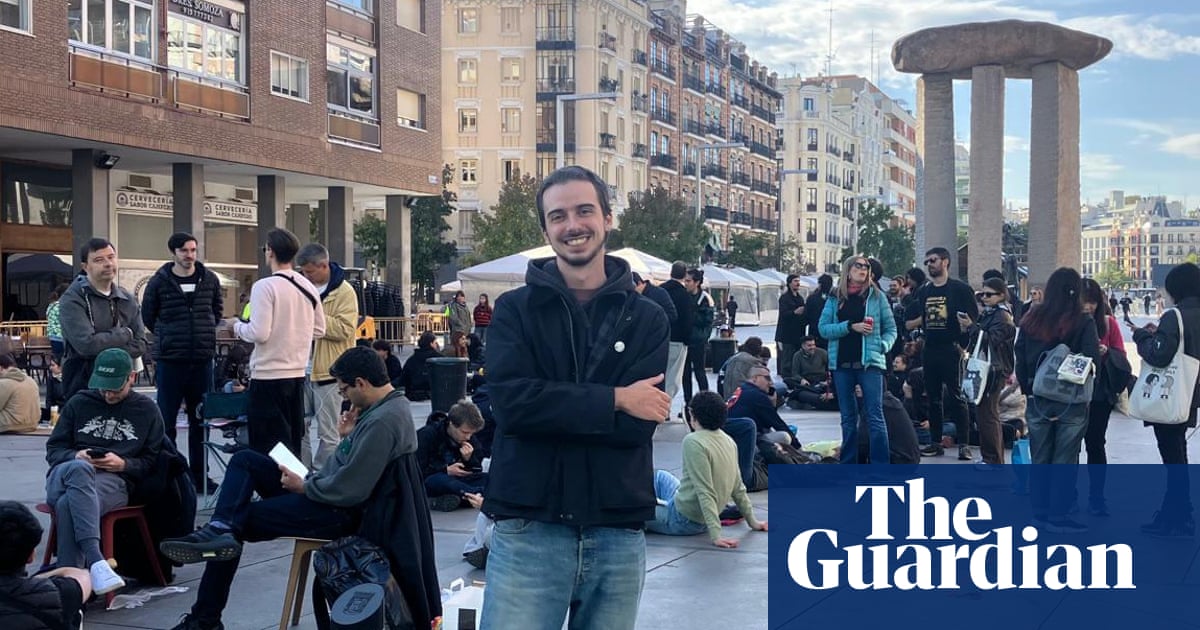Do they come for you at dawn or dusk? In the dead of night, or at family dinnertime? Will they come with masks and shields, or will they be kindly and sheepishly apologetic? Will they accept a cup of tea and a biscuit if offered? Will there will be bags already packed by the door, protocols prepped and drilled, a list of numbers to call? Will you go quietly and with dignity, or in a mess of curse words and screaming limbs?
Perhaps right now this all feels a little fantastical and far-fetched. Perhaps it feels hard to imagine the great wave of remigration lapping up on the pristine middle-class doorsteps of Stroud or Stoke Newington. We can still have a chuckle about it. Maybe there’ll be a nice fat relocation cheque. A free one-way holiday on the British government. Always wanted to visit China at this time of year, and so on.
But of course if the recent history of British politics has taught us anything, it is that nightmarish visions do not stay nightmarish visions for long. There is a heft and momentum behind them, a spirited and concerted effort to make the nightmare flesh. And so in our darkest daydreams, many of the non-white citizens of this country occasionally entertain an idle thought exercise: who wants to get rid of us? Is it you, grumbling old lady on the bus? Is it you, the smartly dressed businessman tutting quietly as two beaming mixed-race children whiz by on mini-scooters? Was that an innocent jostle in the pub queue, or the unmistakable microaggression of a seething racist who wants me gone for good?
Two decades after the Conservative party asked “Are you thinking what we’re thinking?”, it turns out that quite a lot of people were. Through the long years of Windrush scandals and asylum panic, Brexit and beyond, from the British National party in local government to white nationalists proudly parading through our streets, from the Rwanda scheme to “great replacement” theory, a menacing anti-migrant movement has been growling into gear. And we should probably be clear at this point that hotels and small boats were never the endgame.
Of course we knew right from the start that “legitimate concerns over immigration” always had a kernel of racial purification at their core. The tropes and elisions of rightwing discourse – “traditional British values”, “Londonistan”, “multiculturalism” – were always mere euphemisms for simpler and more sinister desires. What has been left unsaid, until relatively recently, has been the other half of the equation: how these desires were going to be sated. The roundups and deportations, families being handcuffed and strapped into planes, the wartime-style powers that would create a permanently hostile environment for anyone deemed insufficiently native. This is the omertà that is gradually dissolving.

Naturally, Nigel Farage knew what he was doing when he appeared to exclude women and children from his plan to deport 600,000 people in the first term of a Reform government. He is a savvy enough operator to know that there is not yet a political consensus around the mass deportation of families, much less established citizens. But he was careful not to rule it out entirely. “At this stage it’s not part of our plan for the next five years,” he said, leaving himself plenty of room for constructive ambiguity. Recall that as recently as last September Farage was rejecting mass deportations as “a political impossibility”, and it becomes clear that his intention is to shift the window of the acceptable firmly but by small degrees. And in the meantime, there are plenty of loud voices happy to make the case in his absence.
You do not even need to wade into the swamp waters of X and Facebook, where “remigration” discourse has spiralled into a kind of mass frenzy, where non-white Britons are routinely hounded with cries of “deport”. The MP Rupert Lowe has published his blueprint for the “mass deportation of illegal migrants”, and of course once you have the levers of power the words “illegal” and “migrant” can mean whatever you want them to mean. “From Epping to the sea, let’s make England Abdul free,” proclaimed the former Conservative and Ukip MP Douglas Carswell said last week. James Catton, the donor manager of Reform UK, has advocated forcibly deporting 10 million people.
The paradox here is that these are extreme fringe viewpoints, advocated by a tiny sliver of the British population, and yet with the potential to exert a frighteningly disproportionate influence on a future political class. The mobbed state violence of the Trump administration offers a blueprint for how a broad-based electoral mandate can be leveraged to advance sweeping minoritarian policies, a racist purge enacted under the pretences of popular consent. The burning question, as such, is not how this future can be realised, but who is going to avert it.
So it starts with refugees and sex offenders, the publicly palatable victims of state retribution. Where does it go next? Perhaps recent legal migrants, as advocated by a Times columnist on Monday. Naturally, human rights law will need to be dismantled in its entirety, allowing the Home Office to be retooled as a weapon of remigration, citizenship to be reimagined as a function of whiteness, entire communities criminalised at the stroke of a pen, a state of perpetual emergency enacted.
There will be mistakes and administrative errors that will in reality not be errors but intentional bugs, poison pills in an apparatus of mass fear. A permanently hostile environment, in which the guy who defaces a mosque or racially abuses me in the street knows he will get away with it. We will hear talk of population control and enemies within. Finally, once a few turbulent years have elapsed, once the window has shifted far enough, the knock on the door. At which point, does the rightwing press finally locate its moral compass and scream: no more?
after newsletter promotion
Does this still look like dystopian fiction to you? Perhaps a better way of framing the question is to go back two decades, pretend that the ethnic cleansing of the United Kingdom was your ultimate goal, and ask how satisfied you would be with how things had turned out. The nativist fantasies of yesterday are now written into the manifestos of today, and who knows how the manifestos of tomorrow will read. The leader of the Alternative für Deutschland, leading many opinion polls in Germany, has endorsed the mass remigration of migrant communities. The far-right Vox party in Spain has vowed to deport 8 million “foreigners” and has polled as high as 18.9% this year. The project of sealing national borders has, ironically, been a concerted cross-border effort.
Politics, at the voter level, is so often a direction rather than a destination. Most of us have no coherent, overarching vision for how the world should work, much less how we should get there. What we so often describe as politics is, in fact, a series of shoves: splenetic, emotional and with a wilful blindness to consequence that can so easily be exploited by those with a clear destination in mind.
And so the politicians and pundits who now crack the whip on immigration need to be asked, right now, where this ends. They should be made to say the thing they are judiciously trying to avoid saying, or to renounce it completely. Bottom line: the idea of mass deportations as a realistic political agenda would have felt as far-fetched two decades ago as the idea of your non-white friends being strapped into a plane does now. This, in itself, should serve as a warning.
-
Jonathan Liew is a Guardian columnist

 1 month ago
92
1 month ago
92

















































